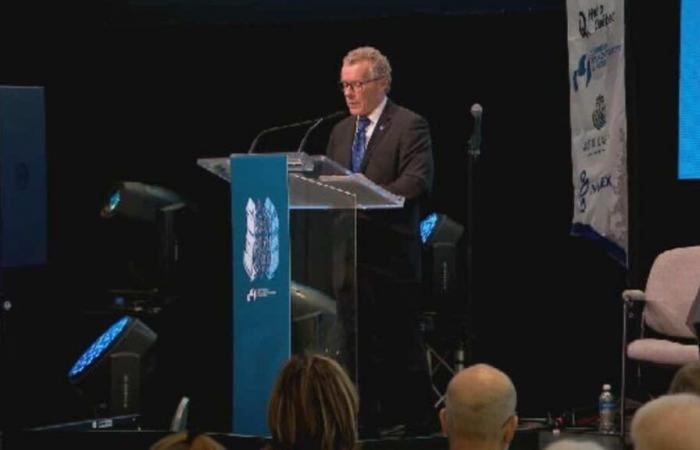An agreement between the Quebec Construction Commission and the First Nations and Inuit was unveiled in Trois-Rivières, in Mauricie, Quebec wanting to increase the number of First Nations and Inuit workers on construction sites.
“This is another step forward,” immediately indicates Ghislain Picard, chief of the Assembly of First Nations of Quebec and Labrador.
“There are immense and diverse needs in the construction industry,” says the Minister of Labor and MP for Trois-Rivières, Jean Boulet.
The Construction Industry Action Plan for the Inclusion of First Nations and Inuit provides 24 measures to promote the participation of the indigenous workforce and businesses.
Minister Boulet gives some examples of these measures.
“There will be the possibility of obtaining cards without a job guarantee, without a letter of commitment. There will be increased mobility. There will be delocalized training in indigenous languages,” he illustrates.
Adapting teaching to promote academic success is at the heart of the priorities, as explained by the CEO of the Commission de la construction du Québec (CCQ), Audrey Murray.
“We have Inuit people at the moment who have a lot of experience, but who are failing our qualifying exams. So, the action plan suggests that we experiment with practical exams to recognize their skills in another way and allow them to become journeymen in our industry,” she mentions.
The objective is to increase the number of First Nations and Inuit workers on construction sites to 1% within 10 years, while they currently represent 0.38% of the workforce.
According to the latest publications from the CCQ, labor needs for construction in Quebec are estimated at 17,000 people.
This increase is necessary to renew the workforce and also support growth, which is particularly strong with the upcoming energy transition and Hydro-Québec projects.






